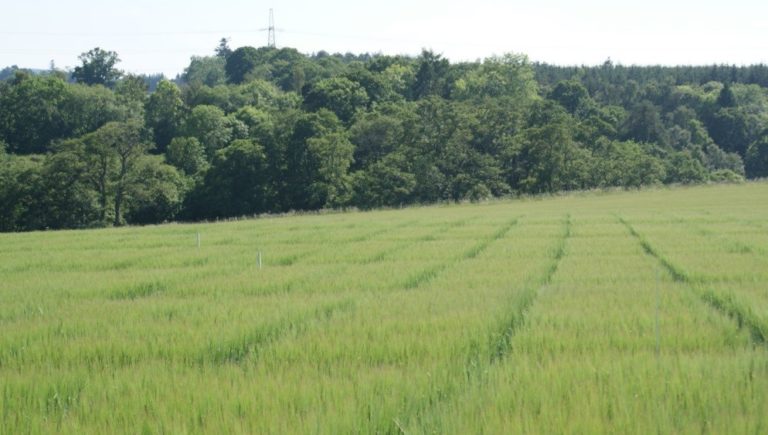Reduce Your Reliance On Pesticides With This IPM Tool
24 April 2025The essence of Integrated Pest Management (IPM) is to take a holistic approach to managing the pests, weeds, and diseases specific to your farm, using a mix of tools and strategies that maximize profitability while minimizing environmental impact. However, measuring success in IPM isn’t straightforward — it's like comparing apples and pears. There are many routes to achieving a good outcome, so how do you fairly compare practices across different farms, seasons, or even evaluate what areas to improve?
In 2023, SRUC, in collaboration with Teagasc and the University of Reading, developed a new IPM planning tool to replace older, static tick-box lists. This new tool allows you to score your IPM practices, using farmer-led metrics to assess how valuable different interventions — such as crop rotations or resistant varieties — are in reducing pest and disease risks. Crucially, this system is grounded in practical farm experience, not just academic theory.
This tool is designed to help you establish a baseline for your farm and identify the practices that can make the biggest impact on reducing pest, weed, and disease pressures — and consequently, reduce your reliance on pesticides.
Even in the early stages of developing the tool, growers' input revealed interesting insights: for instance, preventative strategies like crop rotation were seen as some of the most valuable measures. Encouragingly, initial pilot results from over 200 growers showed that Scotland performed well, sending a positive message that our industry already has a strong foundation in IPM.
The tool has now been adopted by the Scottish and English Voluntary Initiative Schemes, as well as by Scottish Quality Crops Ltd and Red Tractor assurance schemes, replacing the previous plans. The Scottish IPM Plan is hosted on Scotland’s Plant Health Centre’s website: www.planthealthcentre.scot/scottish-ipm-assessment-plan.
All data entered is confidential and intended solely for your own use, helping you demonstrate to auditors that you have completed a plan. No individual-identifiable data will be shared.
This tool is designed to help you establish a baseline for your farm and identify the practices that can make the biggest impact on reducing pest, weed, and disease pressures — and consequently, reduce your reliance on pesticides.
It’s important to understand that IPM isn’t simply about swapping chemical pesticides for biological alternatives. True IPM means using pesticides judiciously: applying them only when necessary, at the right dose, and in ways that minimize environmental harm. Just as importantly, it involves assessing the effectiveness of treatments and adapting future plans accordingly.
By focusing on efficiency and precision, IPM offers many "win-win" opportunities for sustainable farming.
The new Scottish IPM Plan is now live at Scotland’s Plant Health Centre website.
Fiona Burnett and Mark Bowsher-Gibbs.
Sign up to the FAS newsletter
Receive updates on news, events and publications from Scotland’s Farm Advisory Service

